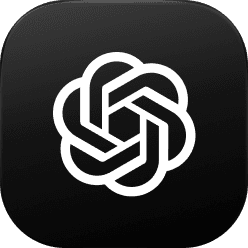How to build a UX Case Study with ChatGPT?
Step 1: Title and Overview
Copy Prompt: Suggest a captivating title and a concise overview for a UX case study focused on [Project Focus], highlighting the importance of literature review in the initial research phase.
Step 2: Problem Statement
Copy Prompt: Based on your knowledge, help me formulate a problem statement for a UX project aimed at [Project Goal], drawing upon relevant insights from existing literature and research findings.
Step 3: Background and Context
Copy Prompt: Provide a summary of key insights from your knowledge base on [Topic Related to Project] that could set the background and context for a case study on [Project Focus].
Step 4: Research (Literature Review)
Copy Prompt: Conduct a 'literature review' using your knowledge base, focusing on [Specific Research Area] relevant to [Project Focus], and summarize the key findings that could guide the project.
Step 5: User Personas and User Journey Maps
Copy Prompt: Using insights from your training data, define user personas and construct user journey maps for a UX project focused on [Application Domain], based on typical user behaviors and needs.
Step 6: Design Process
Copy Prompt: Describe how findings from your 'literature review' on [Design Principle or Best Practice] can be integrated into the design process for a project focused on [Project Focus].
Step 7: Solution
Copy Prompt: Detail a UX solution for [Project Focus], explaining how insights from your knowledge base on [Key Finding] informed the final design decisions.
How to build a UX Case Study with ChatGPT?
Step 1: Title and Overview
Copy Prompt: Suggest a captivating title and a concise overview for a UX case study focused on [Project Focus], highlighting the importance of literature review in the initial research phase.
Step 2: Problem Statement
Copy Prompt: Based on your knowledge, help me formulate a problem statement for a UX project aimed at [Project Goal], drawing upon relevant insights from existing literature and research findings.
Step 3: Background and Context
Copy Prompt: Provide a summary of key insights from your knowledge base on [Topic Related to Project] that could set the background and context for a case study on [Project Focus].
Step 4: Research (Literature Review)
Copy Prompt: Conduct a 'literature review' using your knowledge base, focusing on [Specific Research Area] relevant to [Project Focus], and summarize the key findings that could guide the project.
Step 5: User Personas and User Journey Maps
Copy Prompt: Using insights from your training data, define user personas and construct user journey maps for a UX project focused on [Application Domain], based on typical user behaviors and needs.
Step 6: Design Process
Copy Prompt: Describe how findings from your 'literature review' on [Design Principle or Best Practice] can be integrated into the design process for a project focused on [Project Focus].
Step 7: Solution
Copy Prompt: Detail a UX solution for [Project Focus], explaining how insights from your knowledge base on [Key Finding] informed the final design decisions.
How to build a UX Case Study with ChatGPT?
Step 1: Title and Overview
Copy Prompt: Suggest a captivating title and a concise overview for a UX case study focused on [Project Focus], highlighting the importance of literature review in the initial research phase.
Step 2: Problem Statement
Copy Prompt: Based on your knowledge, help me formulate a problem statement for a UX project aimed at [Project Goal], drawing upon relevant insights from existing literature and research findings.
Step 3: Background and Context
Copy Prompt: Provide a summary of key insights from your knowledge base on [Topic Related to Project] that could set the background and context for a case study on [Project Focus].
Step 4: Research (Literature Review)
Copy Prompt: Conduct a 'literature review' using your knowledge base, focusing on [Specific Research Area] relevant to [Project Focus], and summarize the key findings that could guide the project.
Step 5: User Personas and User Journey Maps
Copy Prompt: Using insights from your training data, define user personas and construct user journey maps for a UX project focused on [Application Domain], based on typical user behaviors and needs.
Step 6: Design Process
Copy Prompt: Describe how findings from your 'literature review' on [Design Principle or Best Practice] can be integrated into the design process for a project focused on [Project Focus].
Step 7: Solution
Copy Prompt: Detail a UX solution for [Project Focus], explaining how insights from your knowledge base on [Key Finding] informed the final design decisions.

